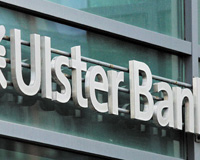 Royal Bank of Scotland is nearing the end of its sale of Ulster Bank bad loans with the launch of Project Finn.
Royal Bank of Scotland is nearing the end of its sale of Ulster Bank bad loans with the launch of Project Finn.
KPMG has been appointed to market the Irish non-performing loan portfolio, which has a face value of more than €2.5bn (£1.8bn).
The portfolio contains three tranches of debt secured against Irish commercial real estate, residential assets and a highly granular tranche of small business loans.
RBS is asking for offers for the portfolio as a whole or in its individual tranches, owing to the diverse nature of the loans’ underlying assets.
The commercial real estate tranche is the largest, with a face value of more than €1.5bn. It contains loans secured against a variety of assets, including office blocks and at least two retail parks, Navan retail park in County Meath and Castlebar in County Mayo.
The residential loans are secured against buy-to-let assets spread throughout Ireland. The loan book has a face value of around €750m.
The third and smallest tranche is a series of loans made to smaller businesses, with a face value of €250m.
Project Finn is expected to attract NPL investors looking to expand their portfolios ahead of the market drying up as lenders come to the end of their deleveraging processes (see p32).
This week Sankaty Advisors agreed to buy another Ulster Bank NPL portfolio, Project Coney. This highly granular portfolio contained hotel and pub loans with a face value of €465m.
Underbidders on those deals included CarVal, Goldman Sachs, Lone Star and Apollo.
If successful, the sale of Project Finn and Project Coney will nearly halve the remaining Ulster Bank bad loans held by RBS in its bad bank, RBS Capital Resolution.
At the end of March, RCR had £5.3bn in assets remaining in the Ulster Bank book.
RBS also this week sold the last of its major Northern Irish loans – a £1.4bn portfolio called Project Rathlin – for £205m to Cerberus Capital Management.










